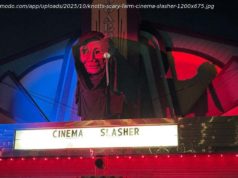Researchers used a simulator to enduce dozens of brave participants with motion sickness and study their brain activity.
Normally, I’d start this sort of article by saying something along the lines of, “Everyone knows how horrible it is to feel motion sick.” But that’s not entirely true—plenty of people can text, read, and do all sorts of things in a moving vehicle without feeling the slightest bit nauseous. If that sounds like you, you’ll have to trust me—a chronic sufferer of motion sickness—when I say that it wholeheartedly sucks.
Plus, many drugs used for motion sickness come with an unwanted side effect: drowsiness. While that’s useful for a long-haul red-eye, it definitely kills the mood on a road trip. That’s why researchers have looked into whether music can help people recover from carsickness, and they might be onto something.
“Motion sickness significantly impairs the travel experience for many individuals, and existing pharmacological interventions often carry side-effects such as drowsiness,” Qizong Yue, a researcher at Southwest University in China, said in a statement. “Music represents a non-invasive, low-cost, and personalized intervention strategy.”Simulated carsickness hell
In a study published today in the journal Frontiers in Human Neuroscience, Yue and colleagues induced carsickness in study participants with a driving simulator (you couldn’t pay me enough to get into that) and then played different types of music while monitoring them for potential recovery. According to their results, soft and joyful music best supported recovery. Perhaps surprisingly, even sad music was worse than doing nothing.
Start
United States
USA — software Motion Sickness Sufferers, Rejoice: Scientists Say This Might Actually Help






